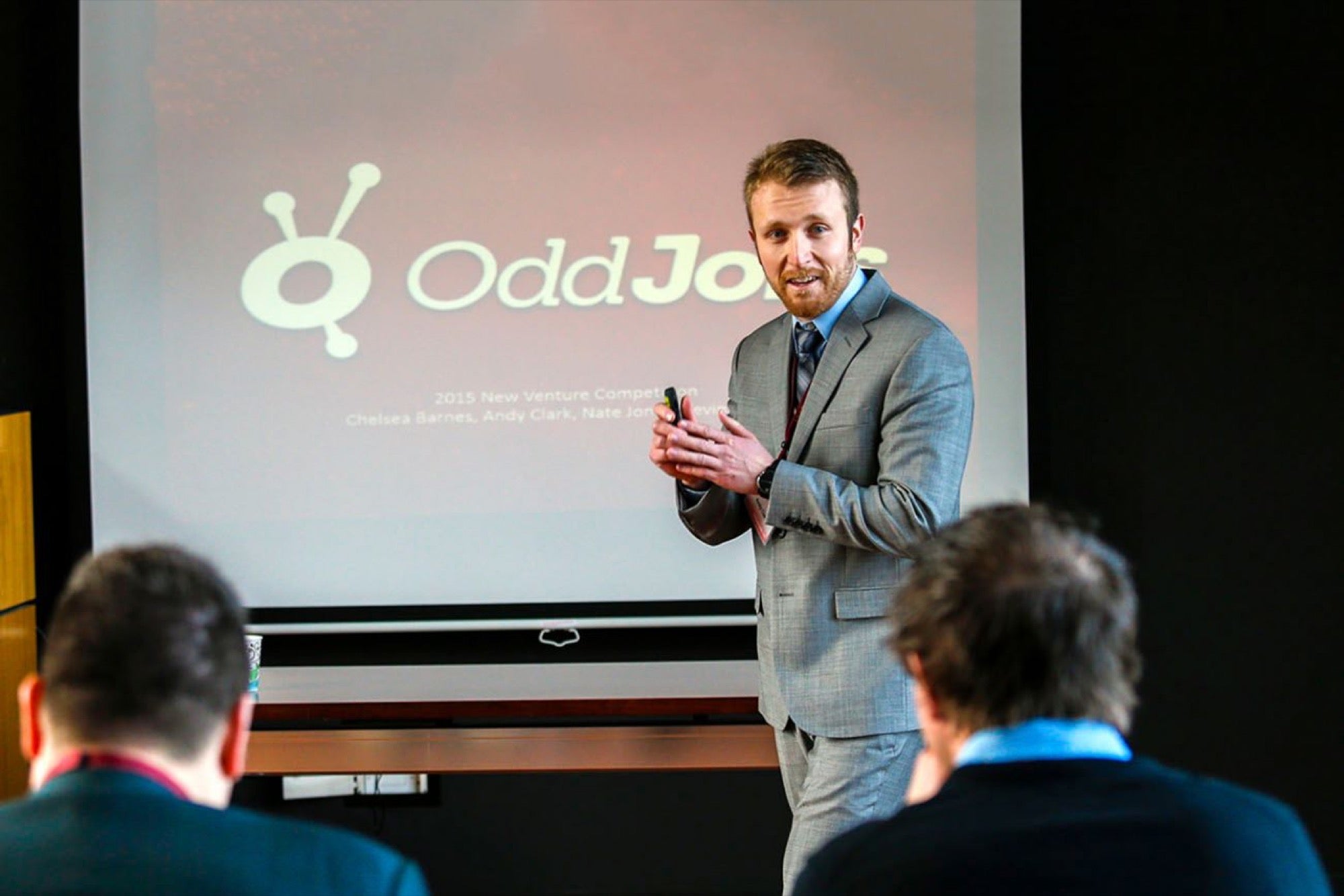Sponsored Content | Brand Spotlight Partner What's This?
Entrepreneurial Transactions: Going Beyond the Pitch This vital knowledge can make or break your business venture.

Jeff Thomas talks fast. He sweeps you along in a torrent of words and ideas. By the end of the journey, you're convinced of his passion for entrepreneurs and his dedication to filling a large gap he sees in their education.
"Entrepreneurship education needs programs designed specifically to instill the transactional information and skills entrepreneurs need to turn ideas into actions," says Thomas who serves as program director of the new Master of Entrepreneurial Transactions program at Central Michigan University.
"Many of the practical, yet complex, subjects involved don't fit well within traditional MBA or JD programs, which are for future general managers and attorneys, respectively," he continues. "We need programs for students who are serious about entrepreneurship, who see executive summaries and investor pitches as starting points rather than finish lines, and who want to learn the nuts and bolts of building business ventures."
Even the most passionate people who launch new ventures often don't understand how to use equity to recruit and compensate teams, protect intellectual property, comply with state and federal securities laws, or take advantage of critical tax perks. By studying entrepreneurial transactions, students not only avoid potentially fatal mistakes, they learn what's possible and how to work with others to convert business plans into real ventures and real value.
Before his academic career, Thomas was an attorney in Chicago and Silicon Valley, advising clients on business formations, angel investments, venture capital financings and intellectual property matters. He's seen what can go wrong when uninformed entrepreneurs rush to start or grow business ventures, and he's seen the wealth and jobs that can be created when entrepreneurs make the right business, legal and tactical decisions.
What sort of transactions do you need to understand as an entrepreneur?
- Forming new business entities including corporations, LLCs and mission-focused public benefit corporations.
- Using sweat equity to recruit, motivate and retain employees and advisors.
- Identifying and protecting intellectual property such as brand names, inventions, trade secrets and other creative works.
- Leveraging crowdfunding platforms, social media and other technology tools to generate and support growth.
- Raising seed capital from friends and family, accelerator programs, and angel investors.
- Structuring and negotiating venture capital investments and strategic partnerships.
- Buying and selling businesses, whether exiting a venture or becoming an entrepreneur by acquisition.
Thomas shared his proposed curriculum with several successful entrepreneurs, investors and other professionals. They echoed a similar sentiment, "This program looks great. How do I help?" From this, Thomas began building a bullpen of instructors and advisors.
Thomas and his team designed the program to focus on high-growth ventures. This has expanded to include social enterprises.
"Many students want to learn how to form, finance and grow ventures, but many also are interested in improving the world and giving back," Thomas says. "The students we see are almost all working professionals, but they have different goals, and that's fine. We work with everyone so all sorts of entrepreneurs will gain valuable knowledge and skills while earning this new master's degree."